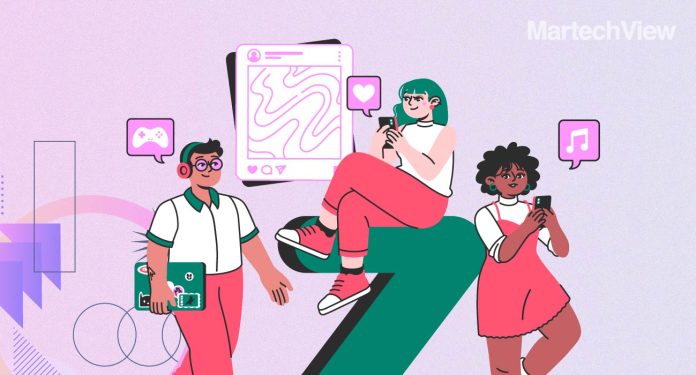Explore how Gen Z is reshaping brand loyalty with its demands for authenticity, sustainability, and personalized experiences. Learn how businesses, especially in travel, are adapting.
The loyalty landscape is undergoing a seismic shift. The model was simple for decades: accumulate points through purchases, redeem them for discounts, and repeat. But a new generation, shaped by a world of instant gratification and a growing consciousness, is demanding more. Gen Z, the digital natives who have come of age in an era of social responsibility and personalized experiences, are rewriting the rules of brand loyalty, and businesses, especially in the travel sector, are scrambling to keep up.
 “Value in loyalty programs isn’t one-size-fits-all,” says Jeff Zotara, Chief Marketing Officer at arrivia. “While it’s commonly associated with discounts or savings, it also includes perks like upgrades and, for Gen Z, rewards that reflect their commitment to sustainability and unique, experience-driven experiences like exclusive events.”
“Value in loyalty programs isn’t one-size-fits-all,” says Jeff Zotara, Chief Marketing Officer at arrivia. “While it’s commonly associated with discounts or savings, it also includes perks like upgrades and, for Gen Z, rewards that reflect their commitment to sustainability and unique, experience-driven experiences like exclusive events.”
At the heart of this transformation lies a fundamental redefinition of value. While previous generations may have been primarily motivated by straightforward transactional benefits—the allure of a free flight or a discounted hotel stay—Gen Z’s priorities are more nuanced. They seek authenticity, sustainability, and experiences that resonate with their values. This presents a significant challenge for brands: how can these principles be integrated into loyalty programs without alienating older, more traditionally oriented demographics?
Beyond the Transaction: The Gen Z Value Equation
The traditional view of loyalty as a purely transactional exchange is rapidly becoming obsolete. As Zotara points out, value extends beyond discounts and savings for Gen Z. They are drawn to perks that align with their commitment to sustainability, such as eco-friendly accommodations. They crave unique, experience-driven rewards, like exclusive access to events or curated local adventures.
This doesn’t mean that older generations have suddenly abandoned the pursuit of value. Instead, it highlights the increasing fragmentation of consumer preferences. Millennials, Gen X, and Baby Boomers also have distinct needs and desires shaped by their life experiences and priorities. To navigate this complexity, brands must move away from a monolithic approach to loyalty and embrace a more personalized, data-driven strategy.
Also Read: Personalized Travel Rewards: The Key to Customer Loyalty
The Power of Personalization: Tailoring Loyalty to the Individual
The key to success lies in understanding that there is significant diversity even within a single generation. As Zotara emphasizes, “While Gen Z overall values sustainability, they aren’t a monolith—neither are Millennials, Gen X or Boomers—and we shouldn’t treat them as such. Instead, loyalty providers must use data collected across multiple touchpoints to craft personalized engagement strategies that appeal to individual values, improving the relevancy of the loyalty program in their eyes.”
By collecting data across multiple touchpoints—from online browsing behavior to social media interactions to in-store purchases—brands can develop a comprehensive understanding of individual customer preferences. This data can craft targeted offers and rewards that resonate with customers’ values and interests.
For instance, a Gen Z customer who frequently engages with a brand’s social media posts about environmental initiatives might be rewarded with sustainable travel options or donations to environmental causes. Conversely, an older customer who values convenience and efficiency might be offered expedited services or exclusive access to premium support channels.
Zotara highlights the importance of authenticity in this process. “To maintain authenticity, loyalty programs must be transparent about their practices and rewards. For instance, if a loyalty provider offers sustainable accommodations on its platform, it can leverage hotels’ sustainability certificates to appeal to eco-conscious members and ensure they actively support responsible environmental practices. Or, if they want to offer experiences through their platform to a travel destination, they can partner with a local influencer to curate these experiences, therefore adding credibility and authenticity to the benefit.” Brands must be willing to provide detailed information about their products’ sourcing, their operations’ environmental impact, and the partners they collaborate with.
For example, a travel brand offering sustainable accommodations could showcase hotels’ sustainability certifications, assuring customers that they support responsible environmental practices. Similarly, brands offering experiential rewards, such as curated travel itineraries, could partner with local influencers to add credibility and authenticity to their offerings.
While these initiatives may not appeal to every customer, a sophisticated personalization strategy ensures opportunities are presented to the most interested consumers, minimizing the risk of alienating any group.
Also Read: From Legacy to LaaS: The Evolution of Loyalty Programs
The Travel Industry’s Gen Z Challenge: Beyond the Flight
The travel industry faces a particularly acute challenge in adapting to Gen Z’s evolving expectations. Research indicates that this generation is “less likely to enroll in airline loyalty programs than older generations due to inconsistent travel behavior.” This suggests that traditional travel loyalty programs, focused primarily on rewarding frequent flyers, fail to resonate with younger consumers.
Gen Z’s travel behavior is often characterized by shorter, more frequent trips and a preference for unique, experience-driven travel. They are also more likely to prioritize non-travel redemptions, such as merchandise, gift cards, or access to exclusive events.
To engage this generation, travel brands must expand their loyalty offerings beyond the traditional realm of flights and hotel stays. As Zotara suggests, “Travel brands that want to engage Gen Z should be looking for partners that can provide them with a wide array of redemption options across diverse suppliers.”
This could involve partnerships with various businesses, including restaurants, entertainment venues, local tour operators, and retailers. By offering a wider array of redemption options, travel brands can cater to Gen Z consumers’ diverse interests and lifestyles.
The Need for Speed: Real-Time Rewards and Seamless Experiences
Another key factor in engaging Gen Z is the need for speed and convenience. Having grown up in an era of same-day delivery and instant access to information, this generation expects seamless, real-time experiences. This expectation extends to loyalty programs.
Zotara emphasizes the importance of modern travel loyalty technology in meeting this demand. “For instance, brands that can update members’ points and status in real-time can also offer real-time add-ons such as room upgrades or free Wi-Fi when members check in to their hotel via their loyalty app. This type of instantaneous reward is crucial to resonate with a generation that grew up during an era of same-day delivery.”
Furthermore, travel brands can enhance the value of their loyalty programs by offering flexible earning opportunities. Zotara states, “A travel loyalty platform with a flexible structure that allows members to earn points across different vendors and for different behaviors (as opposed to just travel) will help them earn faster, thereby encouraging higher redemption rates and improving the program’s value.”
This could involve allowing members to earn points for booking activities, dining at partner restaurants, or engaging with the brand on social media. By providing more opportunities to earn points, travel brands can increase program engagement and make their loyalty programs more appealing to Gen Z.
Also Read: Beyond Rewards: Redesigning Loyalty Programs for the Modern Customer
The Future of Loyalty: A Human-Centered Approach
As brands navigate the evolving landscape of loyalty, one thing is clear: the future belongs to those who embrace a human-centered approach. This means putting the customer at the heart of every decision, understanding their needs and values, and delivering personalized experiences that build genuine connections.
Gen Z leads the transformation, demanding authenticity, sustainability, and experiences that resonate with their unique identities. Brands willing to listen, adapt, and embrace these values will be best positioned to win the loyalty of this influential generation and build lasting relationships that drive long-term success. The era of one-size-fits-all loyalty is over. The future of loyalty is personal, authentic, and deeply human.










